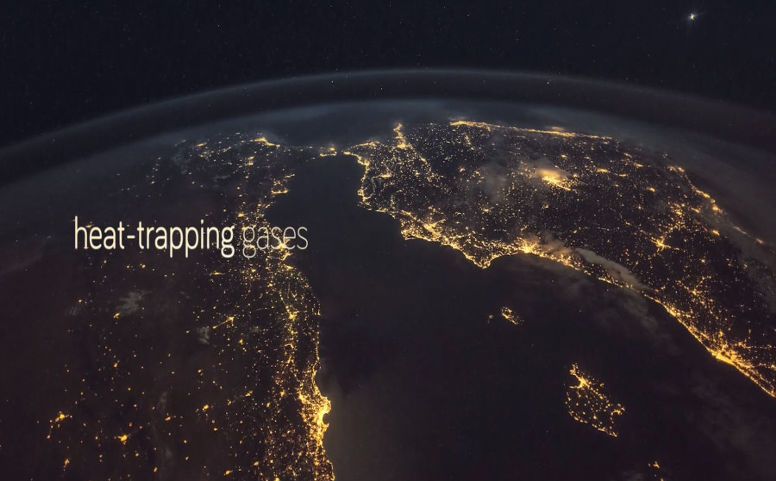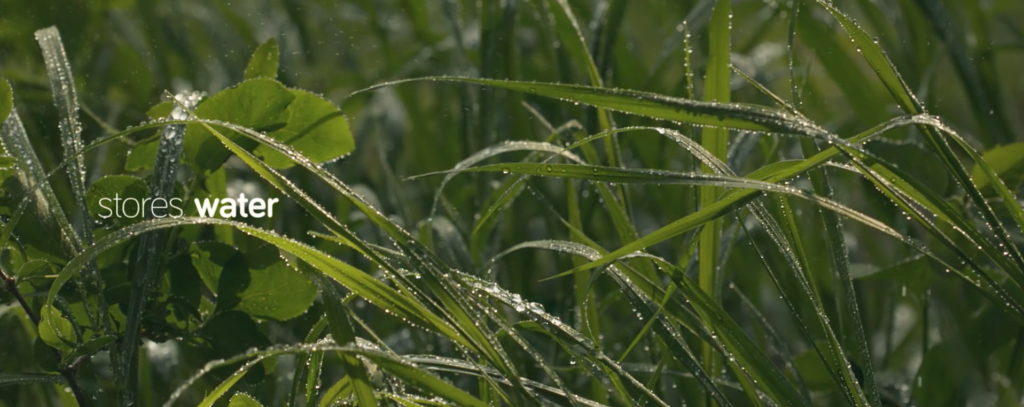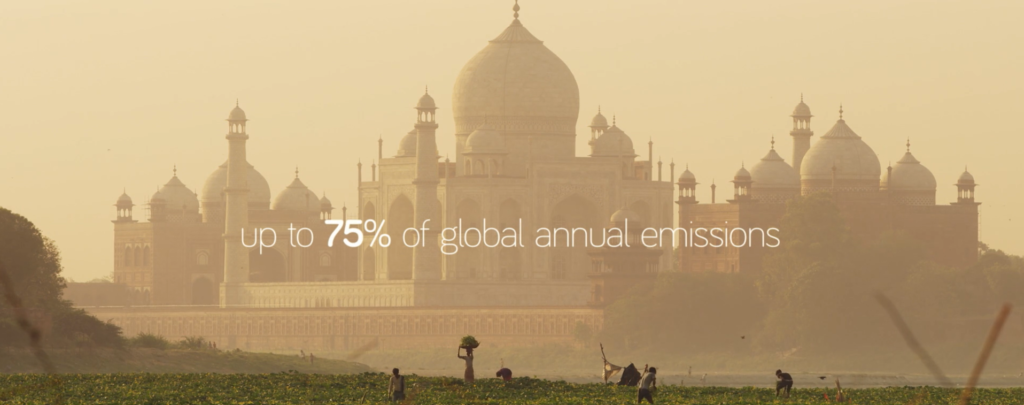Composting is a eco-friendly solution for organic waste management to mitigate the effects of climate change
Soil is a living miracle. In one handful of soil there are more organisms than there are humans on earth and we are only beginning to understand the vast network of organisms right beneath our feet. We rely on healthy soil for 95% of what we eat, yet we take it granted.
Tilled, exposed, and eroded soils lead to the breakdown of soil aggregates, allowing formerly stable soil carbon to be released as a greenhouse gas (CO2) which in turn reduces the water retention capacity of soil and causes soil desertification and soil deforestation. As a result of which the soil will loose its fertility and potential to grow plants.
The soil desertification leads to serious consequences with the climate like since the atmospheric carbon is not put back in soil, too much carbon in the atmosphere causes the earth to overheat and excess carbon also causes acidifying oceans threatening marine life. In fact many of the world’s cultivated soil have lost more than 50% of original soil carbon.
We now know how to put back the carbon into soil where it belongs. Plants capture carbon dioxide in their leaf and pump the carbon down to the roots to feed hungry micro organisms living in the soil, now what have been atmospheric carbon, a “Problem“, becomes soil carbon, a “Solution“.
The solution to climate change is “Just below our feet“.
Crucial Role of Soil Carbon Enrichment
- Carbon rich soils act like giant sponges, absorbs water during floods and provides it to plants in times of drought.
- Fights climate change – Plants absorb carbon dioxide and pump the carbon fuel down to the roots, the mycorrhizal fungi a symbiotic association between plant roots and fungi stores breaks this carbon compound and stores it as stable form as organic carbon called glomalin locking the carbon in the soil.
- Adding carbon to soil makes the land much more productive
- Embrace the change with organic waste composting, a key player in cultivating healthy soil and securing our future well being
How Composting is a solution to fight climate change?
Carbon Sequestration: Composting converts Organic waste into carbon rich material which when applied to soil increases the beneficial microbial population in the soil. These beneficial micro-organisms help in sequestration of carbon-di-oxide from the atmosphere and store in the soil in the form of complex carbon compounds.
Soil Regeneration: Compost enriches soil with organic matter, improving its structure, fertility, and moisture retention capacity. Healthy soils act as carbon sinks, absorbing and storing carbon dioxide from the atmosphere.
Soil nutrients: The nutrients present in the soil are in locked form, in a form which cannot be absorbed by plants, adding compost in the soil enables the beneficial microbes present in the compost to eat the soil nutrients, multiply and convert it into water soluble form for plants to absorb it and this process enables slow release of nutrients to plants.
Conservation of Landfill Space: Composting reduces the amount of organic waste sent to landfills, helping to conserve limited landfill space and extending their lifespan. This reduces the need for new landfill sites, which often contribute to deforestation and habitat destruction.
Energy Savings: Composting requires less energy compared to traditional waste disposal methods, such as incineration or landfilling, which involve transportation and processing. By reducing energy consumption, composting helps to lower greenhouse gas emissions associated with energy production.
Reduced Methane Emissions: By diverting organic waste from landfills, composting prevents the decomposition of organic matter in anaerobic conditions, thereby reducing methane emissions. Methane is a potent greenhouse gas with a much higher warming potential than carbon dioxide.
Overall, composting plays a crucial role in climate change mitigation efforts by reducing greenhouse gas emissions, sequestering carbon in the soil, and promoting sustainable waste management practices.
In a 10-year trial, fields with a crop rotation utilizing compost sequestered more than two metric tons of carbon (Mg C) per hectare per year, while the paired conventional farming system lost carbon.
If every country participates in the initiative to increase soil carbon by 0.4% annually, we could potentially store 75% of global annual greenhouse gas emissions. Enough to make a real difference to our planets future well being.


